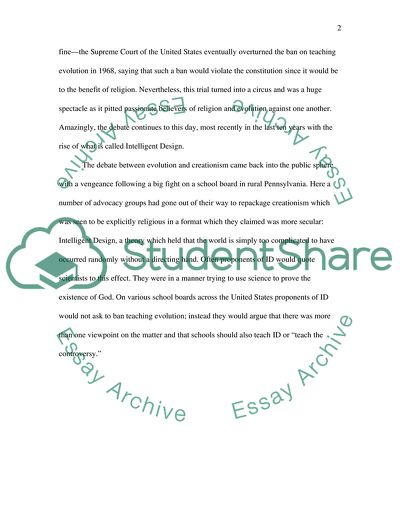Cite this document
(“Evolution Versus Religion Essay Example | Topics and Well Written Essays - 2500 words”, n.d.)
Evolution Versus Religion Essay Example | Topics and Well Written Essays - 2500 words. Retrieved from https://studentshare.org/religion-and-theology/1551620-please-see-directions
Evolution Versus Religion Essay Example | Topics and Well Written Essays - 2500 words. Retrieved from https://studentshare.org/religion-and-theology/1551620-please-see-directions
(Evolution Versus Religion Essay Example | Topics and Well Written Essays - 2500 Words)
Evolution Versus Religion Essay Example | Topics and Well Written Essays - 2500 Words. https://studentshare.org/religion-and-theology/1551620-please-see-directions.
Evolution Versus Religion Essay Example | Topics and Well Written Essays - 2500 Words. https://studentshare.org/religion-and-theology/1551620-please-see-directions.
“Evolution Versus Religion Essay Example | Topics and Well Written Essays - 2500 Words”, n.d. https://studentshare.org/religion-and-theology/1551620-please-see-directions.


